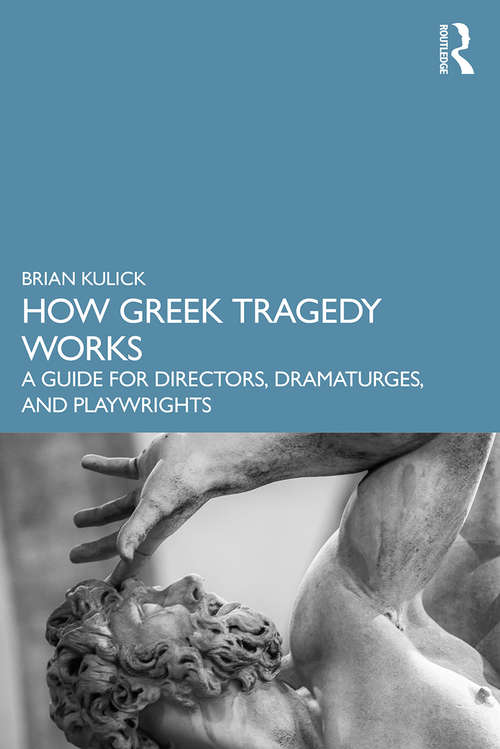How Greek Tragedy Works: A Guide for Directors, Dramaturges, and Playwrights
By:
Sign Up Now!
Already a Member? Log In
You must be logged into Bookshare to access this title.
Learn about membership options,
or view our freely available titles.
- Synopsis
- How Greek Tragedy Works is a journey through the hidden meanings and dual nature of Greek tragedy, drawing on its foremost dramatists to bring about a deeper understanding of how and why to engage with these enduring plays. Brian Kulick dispels the trepidation that many readers feel with regard to classical texts by equipping them with ways in which they can unpack the hidden meanings of these plays. He focuses on three of the key texts of Greek theatre: Aeschylus' Agamemnon, Euripides' The Bacchae, and Sophocles' Electra, and uses them to tease out the core principles of the theatre-making and storytelling impulses. By encouraging us to read between the lines like this, he also enables us to read these and other Greek tragedies as artists' manifestos, equipping us not only to understand tragedy itself, but also to interpret what the great playwrights had to say about the nature of plays and drama. This is an indispensable guide for anyone who finds themselves confronted with tackling the Greek classics, whether as a reader, scholar, student, or director.
- Copyright:
- 2021
Book Details
- Book Quality:
- Publisher Quality
- Book Size:
- 184 Pages
- ISBN-13:
- 9781000291513
- Related ISBNs:
- 9781003119098, 9780367634070, 9780367634063
- Publisher:
- Taylor and Francis
- Date of Addition:
- 12/31/20
- Copyrighted By:
- Brian Kulick, The right of Brian Kulick to be identified as author of this work has been asserted by him in accordance with sections
- Adult content:
- No
- Language:
- English
- Has Image Descriptions:
- No
- Categories:
- History, Entertainment, Nonfiction, Art and Architecture, Literature and Fiction, Drama, Plays and Theater, Language Arts
- Submitted By:
- Bookshare Staff
- Usage Restrictions:
- This is a copyrighted book.
Reviews
Other Books
- by Brian Kulick
- in History
- in Entertainment
- in Nonfiction
- in Art and Architecture
- in Literature and Fiction
- in Drama, Plays and Theater
- in Language Arts
